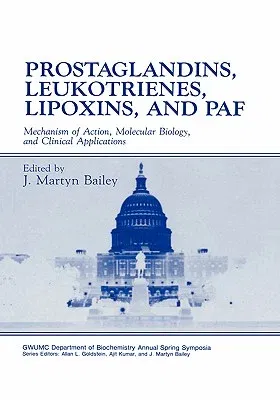Prostaglandins, Leukotrienes, Lipoxins, and Paf: Mechanism of Action, Molecular Biology, and Clinical Applications (1991)Hardcover - 1991, 31 January 1992

Qty
1
Turbo
Ships in 2 - 3 days
In Stock
Free Delivery
Cash on Delivery
15 Days
Free Returns
Secure Checkout

Part of Series
Gwumc Department of Biochemistry and Molecular Biology Annua
Part of Series
Ettore Majorana International Science Series
Print Length
461 pages
Language
English
Publisher
Springer
Date Published
31 Jan 1992
ISBN-10
0306440555
ISBN-13
9780306440557
Description
Product Details
Book Edition:
1991
Book Format:
Hardcover
Country of Origin:
US
Date Published:
31 January 1992
Dimensions:
25.4 x
17.78 x
2.69 cm
ISBN-10:
0306440555
ISBN-13:
9780306440557
Language:
English
Location:
New York, NY
Pages:
461
Publisher:
Series:
Weight:
1038.73 gm